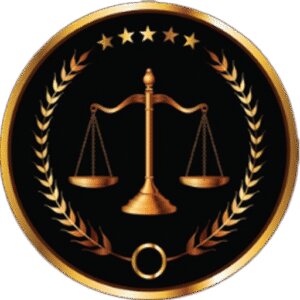Best Adoption Lawyers in Neuquén
Share your needs with us, get contacted by law firms.
Free. Takes 2 min.
Free Guide to Hiring a Family Lawyer
List of the best lawyers in Neuquén, Argentina
About Adoption Law in Neuquén, Argentina
Adoption in Neuquén is part of Argentina's national legal framework for the protection of children and adolescents, applied through provincial courts and public agencies. The process exists to secure a stable, permanent family for minors when biological parents cannot or will not care for them. Decisions are guided by the best-interest principle - the child or adolescent's safety, health and emotional development come first. Procedures include suitability assessments for prospective adoptive parents, judicial review, and administrative steps to register the new parent-child relationship.
Why You May Need a Lawyer
Adoption can involve complex legal, administrative and social steps. You may need a lawyer when:
- You need help understanding eligibility requirements, documentation and procedural steps.
- There are disputes about parental consent, allegations of abandonment, or contested termination of parental rights.
- You are pursuing intercountry adoption or need to comply with international rules such as the Hague Adoption Convention.
- You are a step-parent, relative, single applicant or a same-sex couple and want to confirm your specific legal pathway.
- A background check, home study or social report raises questions that require legal advocacy.
- You want assistance drafting or reviewing agreements, petitions and court submissions, or preparing for hearings.
- You need to appeal a court decision or negotiate with government agencies or guardianship authorities.
Local Laws Overview
Key legal aspects relevant to adoption in Neuquén include:
- National framework - Adoption procedures are governed by Argentina's Civil and Commercial Code and national legislation focused on the protection of children and adolescents. Provincial authorities implement and apply these rules locally.
- Judicial procedure - Adoption is finalized by a judicial ruling issued by the competent family or civil court in the province. Courts evaluate suitability, consent and the childs best interest before granting adoption.
- Administrative involvement - Provincial child protection agencies and registries handle pre-adoption registration, home studies and social assessments. Prospective adopters usually undergo a psychological and social evaluation and are entered in a local or provincial register of applicants.
- Consent and termination - Valid consent from biological parents is usually required, unless their rights have been judicially terminated due to abandonment, unfitness or other lawful causes. The court will ensure that any termination follows procedural safeguards.
- Types of adoption - Legal options include adoption with consent, adoption by relatives (kinship adoption), step-parent adoption, adoption of children in state care, and intercountry adoption. Each type follows somewhat different procedural steps and safeguards.
- Equality and non-discrimination - Argentine law recognizes the rights of single persons and married or civilly-unioned couples, including same-sex couples, to adopt. The primary standard remains the best interest of the child.
- International rules - Intercountry adoptions must follow Argentina's commitments under the Hague Adoption Convention and national implementing regulations. These cases require coordination between national and provincial authorities and the foreign country involved.
- Post-adoption effects - A finalized adoption creates a permanent legal parent-child relationship, with full civil consequences for custody, inheritance, surname and parental authority. The court issues a judicial decree and the civil registry is updated.
Frequently Asked Questions
What are the basic steps to adopt in Neuquén?
Generally the process involves registering as an adopter with the provincial adoption authority, completing a home study and social-psychological assessment, waiting for a judicial match with a child, securing necessary consents or judicial termination of parental rights if required, appearing before the family court, and obtaining a judicial decree of adoption followed by registration of the change in the civil registry.
Who can adopt - are single people and same-sex couples allowed?
Argentina recognizes the right of single people and married or civilly-unioned couples, including same-sex couples, to adopt. The main considerations are the suitability and capacity of applicants to care for a child, rather than marital status or sexual orientation.
How long does an adoption take in Neuquén?
Timelines vary widely depending on the type of adoption, availability of children, complexity of consent or termination issues, and court workload. Some adoptions of children in state care can take several months to a few years. Intercountry adoptions can take longer due to international procedures.
What documents are typically required to begin the process?
Common documents include identity documents, birth certificates, marriage or civil-union certificates if applicable, proof of residence, medical certificates, criminal background checks, proof of income or employment, and any documents related to previous guardianship or custody. The exact list depends on provincial requirements and the adoption type.
Do biological parents always have to give consent?
Consent from biological parents is usually required when their parental rights have not been judicially terminated. Courts will examine whether consent was given freely and with adequate information. If parents are absent, have abandoned the child, or have been found unfit, a judicial termination of parental rights may be necessary before adoption can proceed.
What is the difference between adoption and guardianship or custody?
Adoption creates a permanent, full legal parent-child relationship with all civil effects, including inheritance rights and change of surname. Guardianship or temporary custody grants responsibility for care and protection but does not sever the legal relationship with the biological parents. Guardianship is often used when the child needs temporary placement.
Can a step-parent adopt their partners child?
Yes. Step-parent adoption is a common route, but it requires following legal procedures. The consent of the other biological parent or a judicial termination of that parent’s rights may be necessary. Courts will evaluate the family situation and the childs best interest.
Are there costs involved in the adoption process?
There can be administrative fees, costs for required reports such as medical and psychological assessments, and lawyer fees if you hire legal counsel. Public legal aid may be available for those who cannot afford private representation. Exact costs depend on case complexity and the professionals involved.
What happens after the adoption decree is issued?
After the judge issues the adoption decree, the civil registry is updated to reflect the new legal parent-child relationship. The child receives a new birth certificate showing the adoptive parent or parents. The adoptive family then assumes full parental rights and duties.
How do I find a lawyer who handles adoption matters in Neuquén?
Look for lawyers specialized in family law, with experience in adoption cases and knowledge of provincial procedures. Ask for referrals from local family courts or child protection agencies, check bar association listings, and request an initial consultation to discuss experience, fees and expected timelines. Verify the lawyers experience with the specific type of adoption you need - domestic, kinship, step-parent or intercountry.
Additional Resources
When seeking legal advice or support for adoption in Neuquén, consider contacting the following types of local resources:
- Provincial child protection or social services department - they handle registration, home studies and social work assessments.
- Family or civil courts in Neuquén - for procedural information, filings and court hearings.
- Public defender or legal aid offices - for low-cost or free legal assistance when you cannot afford private counsel.
- Professional associations of family law attorneys - for referrals to lawyers with adoption experience.
- Non-governmental organizations and support groups focused on adoption, child welfare and family services - for practical guidance, emotional support and preparation programs.
- National authorities that implement international adoption rules - where intercountry adoption or foreign coordination is involved.
Next Steps
If you are considering adoption in Neuquén, follow these practical steps:
- Gather basic documents: identity and civil-status papers, proof of residence, birth certificates and any relevant family records.
- Arrange an initial consultation with a family lawyer who has adoption experience - bring your documents and list your questions about eligibility, timelines and costs.
- Contact the provincial adoption or child protection office to learn local registration requirements and to begin the pre-adoption process if required.
- Prepare for the home study and psychological assessments - these are standard parts of the evaluation process and help the court determine suitability.
- Ask your lawyer about alternatives and contingency plans - guardianship, foster care or kinship solutions may apply in some cases.
- Keep records of all proceedings, consents and official communications, and follow the guidance of social workers and legal counsel throughout the process.
Adoption is a major legal and personal commitment. Working with experienced professionals and using local resources will help you navigate the process and focus on the childs best interest.
Lawzana helps you find the best lawyers and law firms in Neuquén through a curated and pre-screened list of qualified legal professionals. Our platform offers rankings and detailed profiles of attorneys and law firms, allowing you to compare based on practice areas, including Adoption, experience, and client feedback.
Each profile includes a description of the firm's areas of practice, client reviews, team members and partners, year of establishment, spoken languages, office locations, contact information, social media presence, and any published articles or resources. Most firms on our platform speak English and are experienced in both local and international legal matters.
Get a quote from top-rated law firms in Neuquén, Argentina — quickly, securely, and without unnecessary hassle.
Disclaimer:
The information provided on this page is for general informational purposes only and does not constitute legal advice. While we strive to ensure the accuracy and relevance of the content, legal information may change over time, and interpretations of the law can vary. You should always consult with a qualified legal professional for advice specific to your situation.
We disclaim all liability for actions taken or not taken based on the content of this page. If you believe any information is incorrect or outdated, please contact us, and we will review and update it where appropriate.









